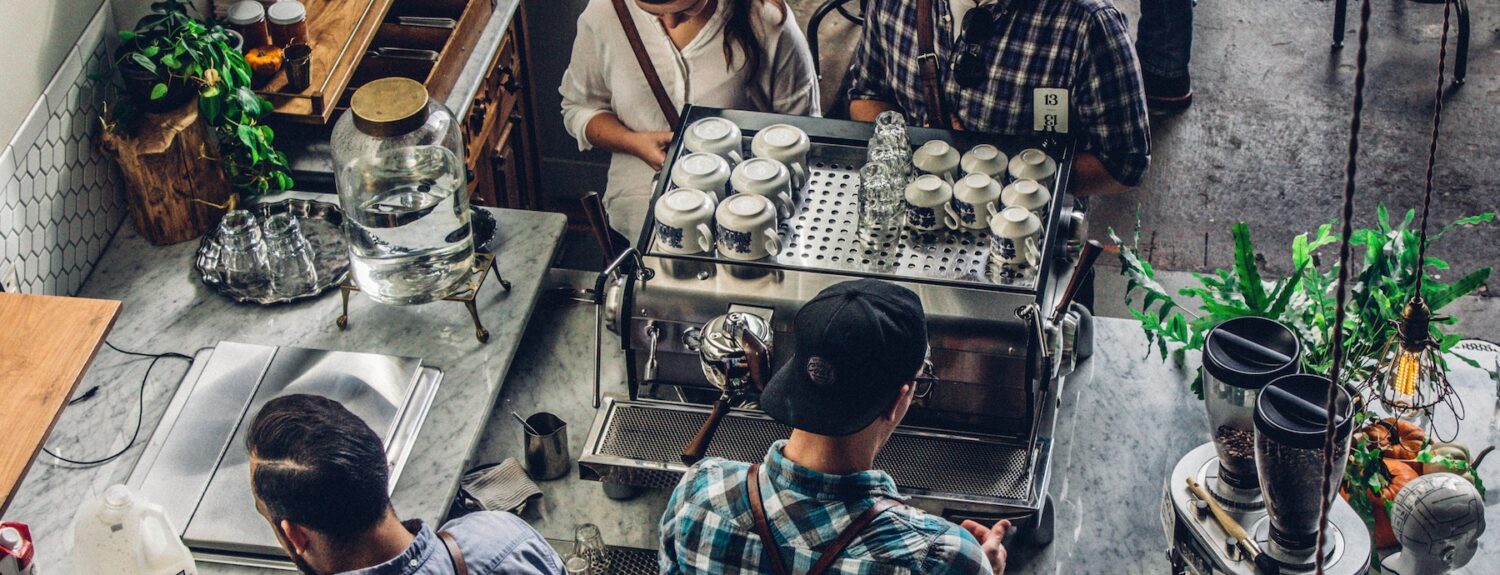Student-produced news blog
The Spectrum is the online publication of the Urban Journalism Workshop, a career prep program for teens at NYU's Arthur L. Carter Journalism Institute.
Special thanks to the following for their generous support:

Lifestyle & Culture
Building community at the coffee shop
By Erin Yoon
The customer was going on and on about how good the juice was. For two consecutive days, the man explained, he had bought that juice three or four times.
“I guess I’ll be seeing you frequently then,” said barista Breslin Logan, 27, as his customer grabbed that pineapple juice and walked out of the cafe.
That kind of conversation between baristas and their regular customers is common. They’re a way of building relationships, even if those bonds don’t extend beyond the confines of a coffee shop.
“You’re just always able to have different experiences, being able to make a different drink for a different person, like, not everything has to be such a cookie cutter. You know?” said Logan, who has worked at Maman coffee shop and cafe near Washington Square Park.
Danielle Casse, a 25-year-old student attending Parsons School of Design, isn’t quite a regular because her money won’t allow her to—when money isn’t a factor, though, this is her place of choice. With this location being in what she says is “right in the center of a sort of like the East Village downtown,” it’s very convenient for a student to come in for a relaxing afternoon and enjoy different pastries.
In addition to his regular customers, he sees plenty of new faces, about 100 of them on weekdays and 500 on weekends, he said, guesstimating.
During the five to six eight-hour shifts that he works each week, Logan’s duties include taking orders for customers who dine indoors or outdoors at tables and chairs that Maman workers assemble. While he’s passing cups and plates to and from customers, he smiles. He strikes up a conversation with almost every customer.
To him, a regular customer is someone who comes in about three to four times a week around the same time and gets the same drink or meal. Those people often know his name and vice versa. Most of their chatter is surface-level. “‘How are you?’ And ‘What are you doing today,'” Logan said, giving some examples.
It’s much easier to talk with customers one-on-one in the mornings, when it’s quieter before the brunch rush hour begins.
“You know, you’re bonding with these random people. I mean, it is a retail coffee relationship, but you are essentially finding them because you see them so much,” said Logan, leaning against the cafe’s door frame.
Customers may not realize that as they swipe their cards, talk about their jewelry, or the dog sitting in their purses, it gives baristas something to look forward to and feel a little more human on a bad day at work.
“People need to be nicer to baristas, especially because we’re not just robots.”
Each table has a laminated card that states that Maman is a “laptop-free environment” and that “reading, chatting, & daydreaming are encouraged.” Customers are all seen sitting along the hybrid of French and American decor while doing as the card also says: “Make a new friend or call your maman.”
Maman opened its first location in SoHo in October of 2014, where founders Benjamin Sormonte and Elisa Marshall hoped to create a safe place for their customers. Maman, mother in French, is an homage to their mothers, who spent their lives in the kitchen and taught them the importance of relationships.
Alongside pastries and drinks, relationships are at the center of Maman. They help motivate the baristas after hard days and keep the customers coming back to see what’s new in the baristas lives.
“I genuinely like talking to the customers and things like that. Now since I’ve been here so long, it’s a lot easier to talk to them.”

